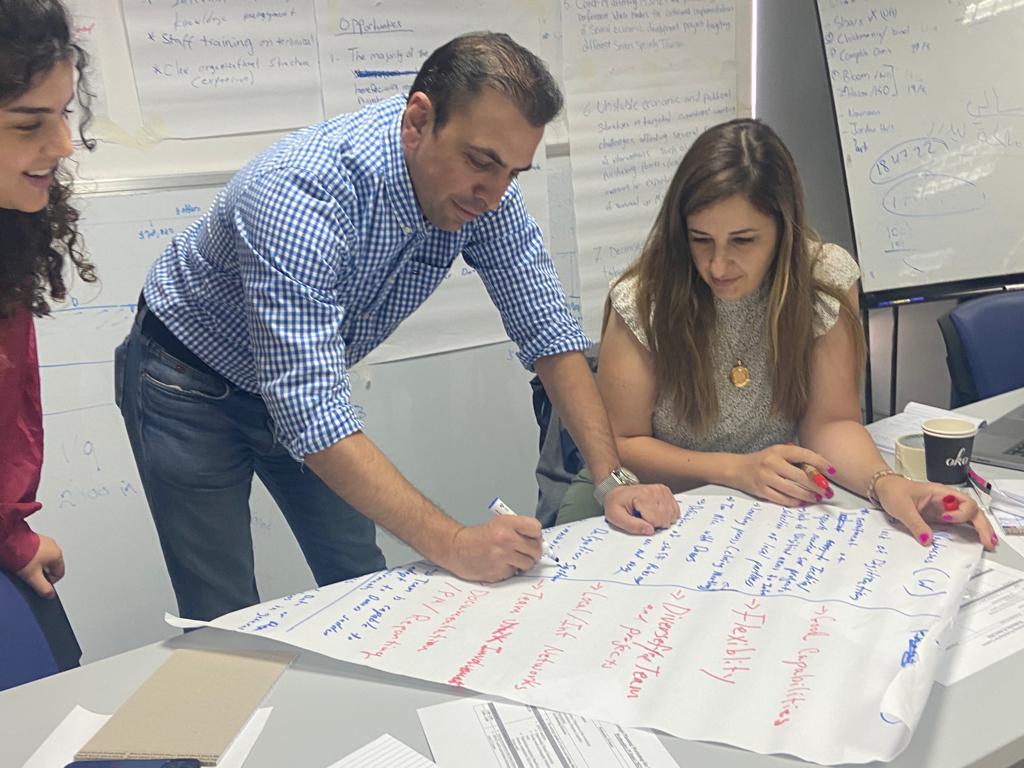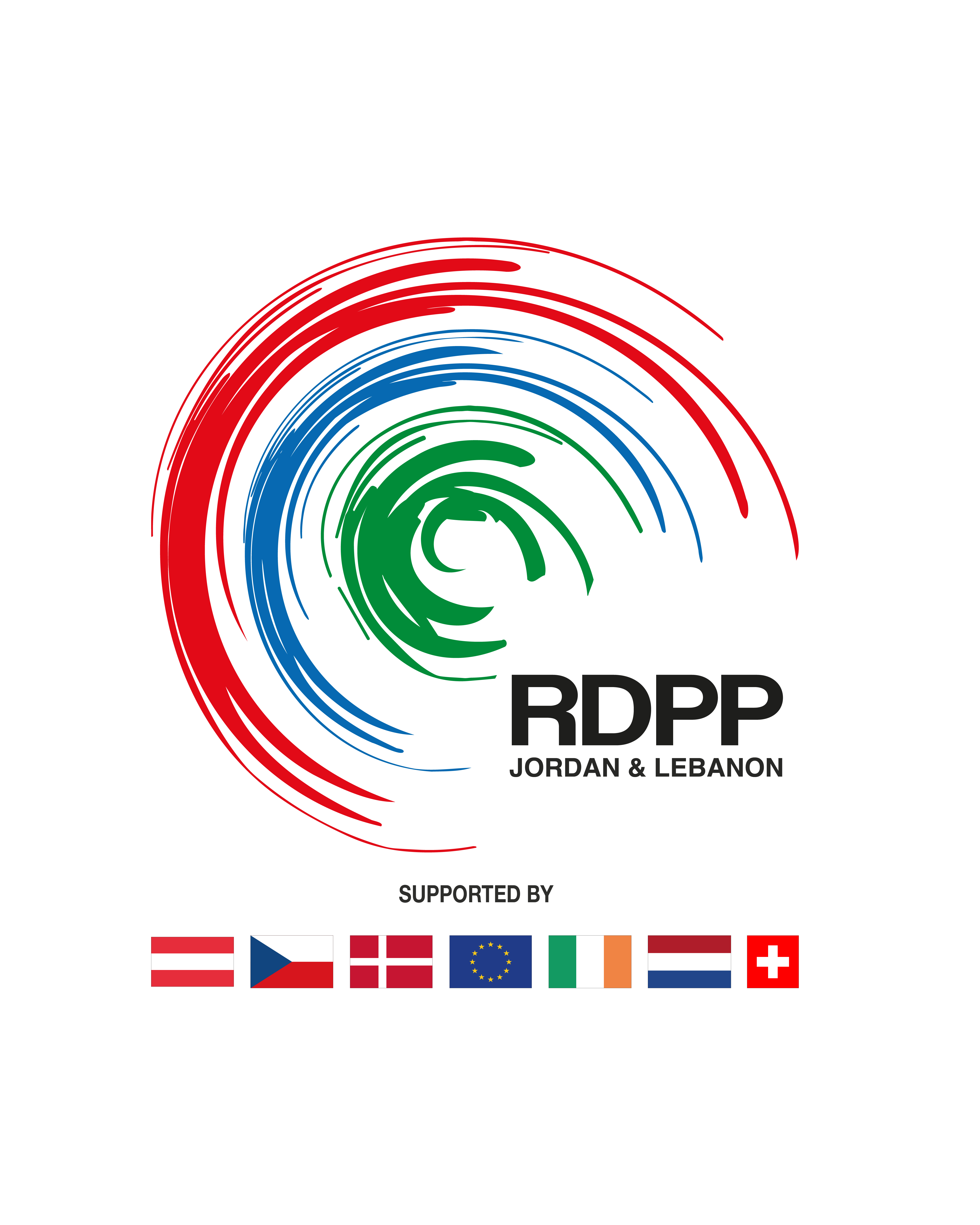
<
>
Supporting Leaders / Jordan
—
One of RDPP’s core principles includes direct partnerships with national NGOs, where feasible. All such partners have the opportunity to allocate sizeable proportions of their budget to their own organizational capacity development needs, which would address specific institutional gaps or support organisational ambitions. In all instances, the partners themselves define their organisational-development priorities, growth vision and aspirations, while RDPP supports with funding, sparring and coaching.
One of such partners is a Jordanian NGO, Leaders International (LI), who has a long experience in implementing economic development projects with a particular focus on supporting growth potential of private sector entities. The RDPP-LI partnership uses demand-driven approaches and capacitates private sector actors to create jobs for job seekers from amongst Syrian and Jordanian youth who had been trained within the project, based on needs identified by the private sector counterparts. The partnership also includes a sizeable capacity development component, where LI have decided to conduct an organisational assessment that would inform the development of a three-year strategic framework, based on a shared understanding of the challenges and opportunities in each department and within the organisation as a whole. To ensure organisation-wide ownership of the process, LI adopted an inclusive approach inviting representatives from each department to a three-day strategic workshop to develop “department action plans” that fed into the overall strategic framework. “We had a vision and knew what we wanted to do as an organisation, but it had not all been written down, and when it’s not written down no one follows it. The workshop helped us create a common vision and define coherent goals and clear objectives. We devised a roadmap, and from that we know we can access and expand in the livelihoods sector”, says Dima Hanyeh, LI’s M&E. The organisational assessment identified gaps in internal guidelines, which were addressed as a matter of priority, while each department continued working on their individual action plans. A number of policies and guidelines were drafted, and circulated among staff who were also trained on multiple software tools and digital platforms, which have systemized various workflows between organisational departments. “Our internal dynamic and ways of working have been influenced by the strategy. Our selection of partners, businesses and beneficiaries has also been influenced by it. We have developed partner and beneficiary selection criteria that take into consideration the context and gender sensitivity in economic development programming, and if a business or a partner NGO who we work with don’t have their own policies, we ask them to sign and adapt ours”, says Dana Sisan, LI’s Procurement.
LI’s organisational evolution took place against another transitional experience related to their working modalities. Having traditionally specialised in market- and labour-demand driven approaches rooted in close partnerships with private-sector entities, equitable focus on the supply side has contributed to significant organisational learning. Originally, an economic development project expert, LI have expanded into becoming a broader livelihoods actor in response to the Syria displacement crisis in Jordan. “When we were mapping out sectors we wanted to work in under this project, we selected the ones where Syrian refugees are allowed to work, and that exist in Syria. We want our beneficiaries to have sustainable and transitional skills to use if they ever decide to go back to their country”, says Abdullah Tkedik, LI’s SME Head. “We have always been good at mostly dealing with factory owners but through the RDPP project had to expand our skillset in engaging with individuals who had gone through a traumatic experience and whose expectations and needs are quite different”, adds Dana. Over 10 years into the Syria refugee crisis in Jordan, the inclusion of Syrian in economic development projects is explicit, with a few challenges related to employment regulations and ease of doing business. “We have focused on the industry sector because there’s a high potential for growth and the factories can sustain their business, despite the circumstances. It is also one of the sectors where Syrians are allowed to work. We identify common objectives with the private sector owners where the demand in the production lines is high and vacancies are available. We then match well-skilled beneficiaries with businesses that are in need of those skills and willing to hire employees regardless their nationality, religion or gender”, describes Abdullah.
LI have started a learning exercise of their capacity development component to continue evolving as an organisation and expanding their livelihoods portfolio. “The RDPP confidence in our ability to identify and improve our gaps has given us the necessary space to do what needed to be done, without being micromanaged but instead with the exact support and guidance we needed. Our organisational growth and capacity development is our mission and goal, and we will continue to invest in this area beyond the RDPP partnership to be able to provide best services possible to our various beneficiary groups”, says Dina Zabaneh, LI’s technical expert.

BACK TO ALL STORIES
